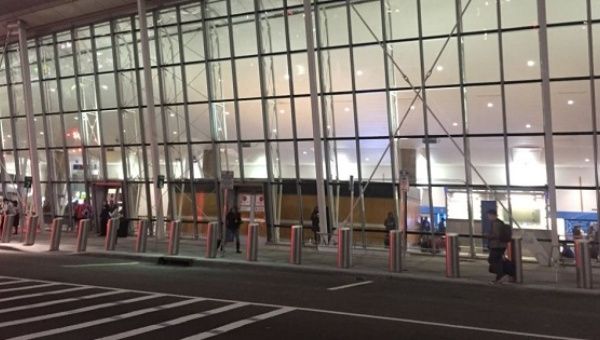#DeleteUber is wrong because it misunderstands surge pricing
This article may contain personal views and opinion from the author.

People misunderstand this because they focus on the cost of surge pricing without considering the actual function of it. Surge pricing is all about demand. When there is high demand, Uber's systems automatically kick in the surge pricing in order to incentivize drivers to go to a certain area and meet that demand. Uber is not a traditional taxi system. The company can't order its drivers to go anywhere, drivers choose the fares they want, and Uber can't force more drivers out on the road. What Uber can do is kick in surge pricing to get more drivers on the road and give them more reason (aka more money) to go to an area with high demand.
So, let's examine what happened at JFK: there was a taxi strike which would have kicked in Uber's surge pricing because of higher demand. Surge pricing would have attracted more Uber drivers to JFK which would have undermined the taxi strike by alleviating the demand for rides with a surplus of drivers looking to cash in on the surge pricing. Instead, Uber turned off surge pricing so Uber drivers wouldn't go out of their way to pick up higher fare rides at JFK, and supporting the taxi strike in the best way Uber could.

Admittedly, Uber might have been able to completely shut down its app for riders looking to get a car at JFK, but the problem there is that Uber would then be taking the decision away from its own drivers. Uber drivers could very well choose to avoid JFK during the taxi strikes, but because of the relationship between Uber and its drivers, Uber doesn't have the authority to demand its drivers take part in such a protest. The taxi drivers at JFK all work for companies and are part of a union, so they can join together and choose to participate. That sort of thing isn't really possible for a decentralized workforce like Uber has.
Uber can't order its drivers to avoid an area or support a protest and can't order its drivers to go to a certain area. All Uber can do is remove the built-in incentive it has (surge pricing) that would otherwise prompt drivers to pick up demand in a certain location. Uber can't force its drivers to support a protest in that way, but Uber as a company has publicly come out in support of the protests and against the immigration ban, and is actively compensating drivers for lost wages caused by the ban.
Imagine this in just about any other scenario: say local farmers went on strike. If big agriculture producers want to undermine that strike, they would send more supply to those areas. If they support the strike, they don't send the supply to meet the demand. That's exactly what Uber tried to do: limit the supply of drivers going to JFK by turning off surge pricing because Uber supported the taxi strike.
Unfortunately, the #DeleteUber protest and media coverage around the incident doesn't seem to understand this. The argument appears to be that turning off surge pricing makes rides cheaper for riders and therefore undermines the taxi strike. What the argument ignores is that cheaper rides don't mean anything if there aren't enough Uber drivers to meet the demand, and that's the real aim of disabling surge pricing: to reduce supply in support of the taxi protest.
So please, think twice before you #DeleteUber.
Follow us on Google News













Things that are NOT allowed:
To help keep our community safe and free from spam, we apply temporary limits to newly created accounts: